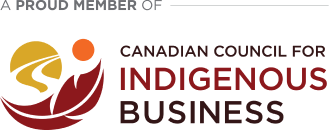
ISO 19778:2015
ISO 19778:2015 Information technology – Learning, education and training – Collaborative technology – Collaborative workplace – Part 3: Collaborative group data model
CDN $173.00
Description
ISO/IEC 19778-3:2015 specifies the Data Model for a collaborative group.
The collaborative group Data Model composes roles which can be played by the participants of a collaborative group, declares the intended role holders (positions for playing a particular role) for each role, and (at least during the life-span of the collaborative workplace) assigns participants to these role holders. The role names may be used as references to roles specified in detail by further specifications or standards. Where no such specifications or standards are available or identified, the provision of descriptions for human interpretation may support harmonized use of these names. Provided participant identifiers may be used as references to detailed participant information which may be specified in a provided user management system.
In future editions of this part of ISO/IEC 19778, the identification of participant types referring to a harmonized or standardized participant typology may be provided. Such a provision would upgrade the value of anonymized collaborative group Data Model instantiations for being reused as templates.
Currently, the collaborative groups specified by this Data Model are static. Participants may not be online all the time; in a collaborative group, private discussions may occur; participants may leave the collaborative group during the life-state of the collaborative workplace. It is not yet clear to which degree such aspects can and should be addressed in future editions of this part of ISO/IEC 19778.
Edition
2
Published Date
2015-10-19
Status
PUBLISHED
Pages
13
Format 
Secure PDF
Secure – PDF details
- Save your file locally or view it via a web viewer
- Viewing permissions are restricted exclusively to the purchaser
- Device limits - 3
- Printing – Enabled only to print (1) copy
See more about our Environmental Commitment
Abstract
ISO/IEC 19778-3:2015 specifies the Data Model for a collaborative group.
The collaborative group Data Model composes roles which can be played by the participants of a collaborative group, declares the intended role holders (positions for playing a particular role) for each role, and (at least during the life-span of the collaborative workplace) assigns participants to these role holders. The role names may be used as references to roles specified in detail by further specifications or standards. Where no such specifications or standards are available or identified, the provision of descriptions for human interpretation may support harmonized use of these names. Provided participant identifiers may be used as references to detailed participant information which may be specified in a provided user management system.
In future editions of this part of ISO/IEC 19778, the identification of participant types referring to a harmonized or standardized participant typology may be provided. Such a provision would upgrade the value of anonymized collaborative group Data Model instantiations for being reused as templates.
Currently, the collaborative groups specified by this Data Model are static. Participants may not be online all the time; in a collaborative group, private discussions may occur; participants may leave the collaborative group during the life-state of the collaborative workplace. It is not yet clear to which degree such aspects can and should be addressed in future editions of this part of ISO/IEC 19778.
Previous Editions
Can’t find what you are looking for?
Please contact us at:
Related Documents
-

ISO 21246:2019 Information and documentation – Key indicators for museums
CDN $351.00 Add to cart -

ISO 3833:1977 Road vehicles – Types – Terms and definitions
CDN $115.00 Add to cart -

ISO 24613:2024 Language resource management – Lexical markup framework (LMF) – Part 6: Syntax and semantics
CDN $115.00 Add to cart -

ISO 16840:2023 Wheelchair seating – Part 14: Concepts related to managing external forces to maintain tissue integrity
CDN $115.00 Add to cart







